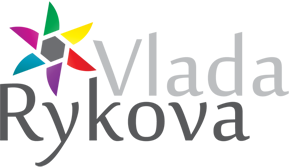Как выбрать профессию и образование
- 1 Руководство по определению своих навыков и способностей
- 2 Исследуйте перспективы и требования выбранной профессии
- 3 Ключевые шаги в процессе выбора профессии
- 4 Различные методы и инструменты для исследования профессий
- 5 Как преодолеть сомнения и принять окончательное решение
- 6 Разговоры с профессионалами и получение советов
- 7 Практический опыт и стажировки в выбранной области
- 8 Часто задаваемые вопросы
Руководство по определению своих навыков и способностей
Процесс выбора профессии является одним из самых важных этапов в жизни каждого человека. Ключевой момент при этом – это определение, какая профессия наиболее соответствует вашим интересам, навыкам и способностям. В этом разделе мы рассмотрим несколько шагов, которые помогут вам более осознанно определиться с выбором.
Самоанализ
Первый шаг в определении своих навыков и способностей – это самоанализ. Вам нужно задать себе вопросы: Чем я увлекаюсь? В чем я хорош? Что приносит мне удовольствие? Что я бы делал с удовольствием, даже если бы за это не платили? Ответы на эти вопросы помогут вам лучше понять, в какой области вы можете проявить себя наилучшим образом.
Определите свои интересы
Выявление своих интересов – важный шаг к правильному выбору профессии. Запишите, какие области знаний, деятельности или предметы вызывают у вас наибольший интерес. Составьте список, и попробуйте выяснить, какие профессии связаны с вашими интересами.
Подчеркните свои навыки
Оцените свои навыки и способности. Что вы умеете делать особенно хорошо? Какие у вас уникальные таланты? Уделите внимание также на необходимость учиться новым навыкам, которые могут быть полезны в выбранной вами области.
Проведите тесты на профориентацию
Существует множество тестов и методик, которые помогают определить ваш будущий профиль и направление. Пройдите несколько таких тестов, чтобы получить дополнительную информацию о себе и своих склонностях. Они также могут помочь выбрать специальность и ВУЗ. Такие курсы помогут разобраться во многих вопросах, которые связаны с поступлением в колледж, но выбирать место обучение придется самому на основе полученной информации.
Исследуйте перспективы и требования выбранной профессии
Когда вы набросали список профессий, которые соответствуют вашим интересам и навыкам, следующий шаг – исследовать эти профессии более детально. Это поможет вам понять, насколько подходит каждая из них вам лично и насколько она перспективна на рынке труда.
Изучите информацию о профессии
Проведите исследование и найдите всю доступную информацию о каждой выбранной профессии. Узнайте, какие обязанности, задачи и ответственности входят в рабочий день специалиста этой области. Выясните, какие требования предъявляются к образованию, опыту работы и сертификациям.
Анализ перспектив
Оцените перспективы выбранных профессий на рынке труда. Изучите статистику занятости и прогнозы развития каждой области. Убедитесь, что выбранная профессия будет актуальна и востребована в будущем.
Совместимость с личными целями
Сравните требования и перспективы профессий с вашими личными целями и планами на жизнь. Учитывайте такие факторы, как возможность карьерного роста, гибкий график работы и рабочие условия.
Ключевые шаги в процессе выбора профессии
После проведения самоанализа и исследования профессий, вы приближаетесь к ключевым шагам процесса выбора профессии:
Сокращение списка профессий
Основываясь на полученной информации, отберите несколько профессий, которые наиболее соответствуют вашим интересам, навыкам и перспективам. Этот список должен быть небольшим, чтобы уделить достаточно времени и внимания каждой из них.
Общение с профессионалами
Постарайтесь связаться с профессионалами из выбранных областей. Поговорите с ними о их опыте, рабочей жизни, преимуществах и сложностях выбранной профессии. Это поможет вам получить реалистичное представление о том, что вас ожидает в этой области.
Практический опыт и стажировки
Если это возможно, попробуйте получить практический опыт в каждой из отобранных профессий. Стажировки или волонтерство помогут вам лучше понять, насколько вы подходите для этой работы и нравится ли вам её окружение.
Различные методы и инструменты для исследования профессий
Существует множество методов и инструментов, которые помогут вам более глубоко исследовать выбранные профессии:
Онлайн-ресурсы
Используйте интернет для поиска информации о различных профессиях, их описании, требованиях, перспективах и зарплатах. Сайты профессиональных ассоциаций и специализированных порталов могут быть полезными источниками.
Книги и публикации
Посмотрите книги и журналы, связанные с выбранными профессиями. Они могут предоставить глубинный взгляд на сферу деятельности и её особенности.
Профориентационные центры
Поинтересуйтесь возможностью посетить профориентационные центры, где вы сможете пройти тесты, получить консультации специалистов и ознакомиться с информацией о различных профессиях.
Как преодолеть сомнения и принять окончательное решение
Процесс выбора профессии может быть сложным и вызывать сомнения. Важно научиться преодолевать сомнения и принять окончательное решение:
Постоянное развитие
Помните, что выбор профессии не является окончательным. Вы всегда можете развиваться, менять свою карьерную траекторию и осваивать новые области.
Поставьте цели
Определите свои долгосрочные и краткосрочные цели. Сравните их с возможностями, которые предоставляет выбранная профессия, и решите, соответствуют ли они вашим амбициям.
Послушайте свои чувства
Доверьтесь своим чувствам и интуиции. Если вы чувствуете внутреннее убеждение в правильности выбранного пути, это может быть верным решением.
Разговоры с профессионалами и получение советов
Не бойтесь общаться с профессионалами и спрашивать совета. Они могут поделиться своим опытом и помочь вам принять решение:
Интервью с экспертами
Запланируйте встречи с профессионалами, работающими в выбранных вами областях. Поговорите с ними о своих интересах, мотивациях и сомнениях.
Семинары и мероприятия
Посещайте семинары, круглые столы и другие мероприятия, связанные с выбранными профессиями. Такие мероприятия могут помочь расширить кругозор и обрести новые знания.
Практический опыт и стажировки в выбранной области
Наконец, приобретите практический опыт в выбранной профессии:
Стажировки и волонтерство
Постарайтесь получить стажировку или волонтерский опыт в организациях, связанных с вашей будущей профессией. Это даст вам знать, насколько она соответствует вашим ожиданиям.
Курсы и образование
По возможности, пройдите дополнительные курсы и обучение, связанные с выбранной профессией. Это повысит ваши шансы на трудоустройство и даст ценный опыт.
Поступление в выбранное образовательное учреждение
Когда вы определились с профессией и выбрали соответствующее образование, наступает время подготовки и поступления. Важно внимательно изучить требования выбранного учебного заведения и правила поступления на факультет. Соберите все необходимые документы, подготовьтесь к вступительным экзаменам или интервью. Обратитесь за советами к консультантам по поступлению или студентам, которые уже учатся в данном учебном заведении, чтобы получить ценные рекомендации. Не забывайте о сроках подачи заявлений, и, главное, будьте настойчивыми и уверенными в своем выборе. Помните, что поступление – это только начало вашего учебного пути, и с каждым шагом вы будете приближаться к осуществлению своей профессиональной мечты.
Запомните, что процесс выбора профессии – это постоянный путь самопознания и развития. Не бойтесь экспериментировать и искать свой идеальный путь. Важно следовать своим интересам и стремлениям, чтобы работа приносила вам удовлетворение и радость на протяжении всей жизни.
Часто задаваемые вопросы
Как найти профессию по душе, кем стать?
Для поиска профессии по душе:
- Определите ваши интересы и страсти. В чем вы находите удовольствие и что вызывает у вас энтузиазм?
- Оцените ваши навыки и таланты. В чем вы хороши, и что бы вы хотели развивать?
- Изучите различные области и профессии. Прочтите про разные виды работы, проведите информационные интервью с людьми, уже работающими в этих областях.
- Протестируйте свои предпочтения. Попробуйте стажировки, волонтерство или проекты в интересующих вас областях, чтобы понять, подходят ли они вам.
- Обратитесь к карьерному консультанту или коучу, если нужна дополнительная помощь в выборе профессии.
Как выбрать профессию если не знаешь чего хочешь?
Если вы не знаете, чего хотите, и какую профессию выбрать, пройдите через следующие этапы:
- Самоанализ: Попытайтесь понять, что вам нравится делать, чему вы хотели бы учиться, какие у вас есть навыки и в какой сфере вы видите себя. Вам может помочь составление списков или ведение дневника мыслей и идей.
- Тесты на профориентацию: Существуют различные тесты, которые могут помочь вам подобрать вашу предрасположенность к определенным профессиям исходя из ваших интересов, навыков и характера.
- Исследуйте разные профессии: Попробуйте узнать больше о различных сферах и профессиях. Узнайте, какие навыки требуются, каковы возможности для карьерного роста и какое образование необходимо.
Как выбрать профессию если ни к чему не тянет?
Если вас ни к чему особенно не тянет, вот несколько шагов, которые могут помочь в выборе профессии:
- Анализ интересов: Подумайте, что вам нравится делать в свободное время, какие хобби у вас есть. Часто они могут указать на возможные области для профессионального развития.
- Проведите самооценку: Задумайтесь над своими сильными сторонами и навыками. Даже если вас ни к чему особенно не тянет, у вас могут быть таланты, которые вы можете использовать в профессиональной сфере.
- Профориентационные тесты: Пройдите тесты для определения профессиональных интересов и склонностей. Они могут помочь выявить потенциально интересные вам сферы.
Как выбрать профессию после 9 и 11 класса
Выбор профессии ребенка – важный шаг. Вот памятка, которая поможет школьнику сделать правильный выбор:
- Анализ интересов и навыков: Подумайте, какие предметы в школе вам больше всего нравились, и в каких вы были сильны. Это может указать на потенциальные сферы для вашей будущей карьеры.
- Исследование профессий: Попробуйте провести творческое интервью с профессионалами из интересующих вас областей.
- Советы от других: Обсудите свои мысли с родителями, учителями, карьерным консультантом в школе или с людьми, которые уже работают в областях, которые вас интересуют.
- Образование: Изучите различные образовательные программы и университеты, которые предлагают курсы в интересующих вас областях. Подумайте о том, какие университеты или колледжи подходят вам по духу и атмосфере.
Отличается ли выбор профессии для взрослого и школьника?
Да, выбор профессии для взрослого человека и школьника может отличаться из-за различия в жизненном опыте, текущем образовательном уровне и личных обстоятельствах.
Подростки часто выбирают профессию, исходя из предметов, которые им нравятся в школе, их академических достижений и университетских программ, которые их привлекают. Им также может потребоваться больше помощи и направления от взрослых, таких как родители, учителя или карьерные консультанты.
Взрослые, выбирая новую вторую профессию, могут учитывать свой уже имеющийся опыт работы, навыки, которые они приобрели, и как эти навыки могут быть применимы в других областях. Они также могут принимать во внимание такие факторы, как рабочий график, высокая зарплата, семейные обязательства и долгосрочные карьерные цели.
В обоих случаях важно провести исследования, понять свои сильные стороны и интересы, и рассмотреть различные варианты обучения или дополнительного образования.
Какие лучше профессии для девушек и парней?
Подчеркивание каких-то профессий как “лучших” для девушек или парней может внести смуту и ограничить возможности. Важно помнить, что каждый человек уникален и обладает своими собственными навыками, интересами и ценностями, которые определяют, какая профессия для него лучше всего подходит, независимо от его пола.
Все равно, вы должны исследовать разные профессии и узнать, какие из них наиболее соответствуют вашим интересам, навыкам и ценностям. Это может включать в себя профессии в сфере IT, медицине, образовании, искусстве, бизнесе, инженерии, исследованиях, праве и многих других.
Важно также рассмотреть перспективы роста, уровень заработной платы, баланс между работой и личной жизнью и другие факторы, которые могут повлиять на ваше удовлетворение выбранной профессией.
Помните, что ни одна профессия не ограничена гендером, и все люди имеют равные возможности преуспеть в любой сфере, которую они выбирают.
Эксперт в области интернет-маркетинга. Руководитель маркетингового агентства MAVR.
Бизнес-степень «Мастер делового администрирования» (MBA).



